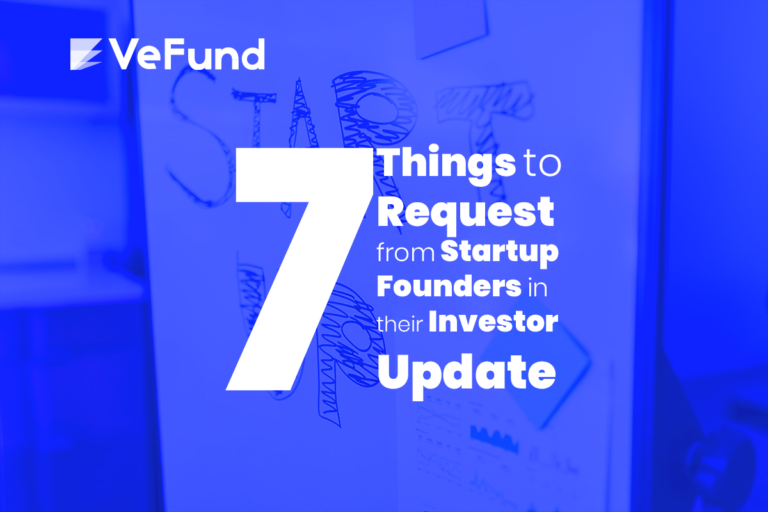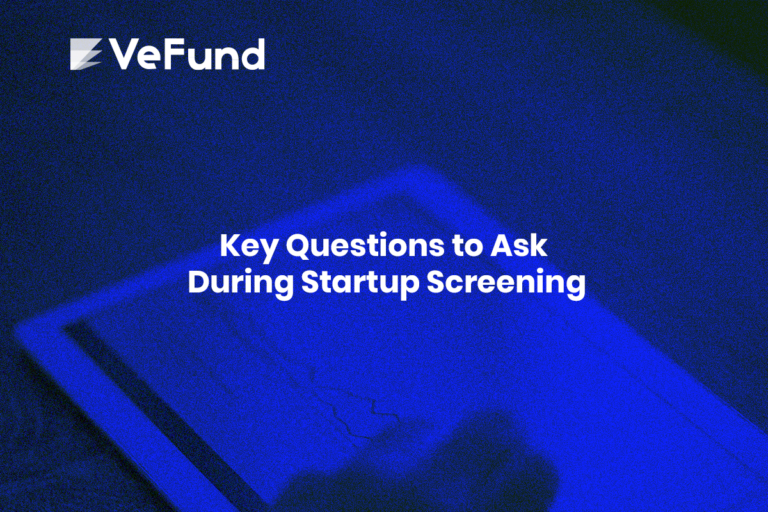Startup Valuation Problems
When it comes to investing in startups, a common debate arises between founders and investors. This debate is usually about how much a startup is worth and accordingly how much its founders can raise as funding.
In other words, this near-daily debate is about startup valuations.
Why? Because there is no one-size-fits-all with startup valuations. Not to mention, the process of uncovering the value of a startup isn’t a straightforward one.
In this article, we’re going to talk about startup valuations, why they are important, this debate between founders and investors, and a new solution that can put an end to this problem.
What does startup valuation mean?
When a startup seeks to raise funding, investors want to know how much this company is worth so they can decide if it’s worthy of their money or not.
This process of uncovering the value of a startup is called a startup valuation.
And to determine the valuation, there are a few startup valuation methods used based on whether the startup is generating revenue or not, if it’s raised revenue in the past, among other factors.
Why valuation is important
The process of valuating a startup becomes important when that startup seeks to raise funding or when the founders are looking for a new technical or business co-founder.
When the startup is in its initial stages, its equity is divided among the founders. But when the startup looks to raise funding, those new investors often buy a portion of the company in exchange for their investment.
But how would they know how much they are buying? Or how much the value of their investment translates to without knowing the overall value of the company?
That’s where startup valuation comes in. It answers all these questions and more.
After all, it’s worth remembering that investors, whether they are angel investors, venture capital funds (VCs), accelerators, or incubators, aren’t investing out of the kindness of their hearts.
Rather, they are investing in order to make a profit or get a benefit within a few years when the startup enters into a merger and acquisition (M&A) deal, gets listed on a stock market, or becomes part of an exit.
How startup valuation works
To valuate a startup, the first thing to do is look at which startup valuation method is the most suitable for your startup. This step is usually carried out by a financial advisor or a legal firm.
Some valuations look at the value of a startup based on its progress and data compared to its peers in the same market or industry, while others break down the startup into various components to give an overall estimated value.
Moreover, whether the startup is generating revenue or not can be a factor for identifying which startup valuation method to use.
Generally speaking, revenue-generating startups are able to offer more solid figures and stronger financial forecasts.
Among the most commonly-used startup valuation methods are the Market Multiples Method, the DCF Method, and the Venture Capital Method.
The problem with startups
When it comes to determining the value of a startup, different problems arise. Let’s examine those startup issues in brief.
1. Startup stage and revenue situation
The stage in which the startup is in impacts both its valuation and the valuation method used.
Many early-stage startups are non-revenue-generating, which means they don’t have revenues yet and therefore have no solid data at hand. Not to mention, their forecasts may be off because they don’t rely on exact numbers.
2. Lack of objectivity
Founders usually invest long hours and tons of energy in the early stage of launching their business. This often makes them biased towards having a large valuation for their startup, which complicates the valuation process.
And this may cause confusion among investors who are considering the startup as a potential investment.
3. Early-stage startups have no history
It may seem obvious but history tends to be an indicator in the world of startups. Accordingly, early-stage startups which have little-to-no history constitute a higher risk for investors.
In other words, startups which have been in the market for more than a year can provide better financial forecasts compared to those who have been in the market for six to 12 months.
This history can play into the startup’s financial forecasts and accordingly its valuation.
4. Some startups may not survive
This is probably the biggest worry for investors.
What if the startup we invest in doesn’t survive?
Like any person, investors are cautious where they put their money.
So a startup with no history and accordingly no solid and forecasts may or may not survive, prompting investors to approach with caution.
Startup valuations: Investors vs founders
So what are those problems between investors and startup founders?
Before we get into that, we need to highlight why investors invest in the first place.
The reason is simple: They want to invest now so that they can get a higher return on their investor (ROI) later. That is, they want to make a sizable amount of money when the startup gets acquired or is listed on a stock market.
We can sum up the problems between investors and founders into two main problems:
Founder-investor problem 1: Founders want a higher valuation
So the issue that arises is that founders pour their heart and soul into the business so naturally they expect and seek to get a valuation for their business.
On the other hand, investors aren’t in favor of very high valuations because this means they’d need to invest more.
Founder-investor problem 2: Investors want faster growth
This problem often hurts startups regardless of valuation.
Often, investors, especially VCs want to see startup scale fast. Usually, the end-result is the startup growing too fast for its own good.
“Founders and investors aren’t having the debate about high-quality versus low-quality growth frequently enough,” notes Eric Paley, managing partner at Founder Collective in a TechCrunch article.
Paley stresses that “Not all growth is created equal,” explaining that there is “good growth” and “bad growth.”
“Bad growth ultimately leads to an unsustainable burn and a masked death spiral [for the startup,” Paley adds, noting that founders need constantly ask themselves and their investors “Growth, but at what cost?”
How VeFund helps investors and startups with valuations
As you can see everyone wants something that serves them in a way.
Founders seek higher valuations to cover their efforts and attract more funding, whereas investors want reasonable valuations to see if your startup is worth the investment or not.
So how can we bridge this gap between founders and investors when it comes to valuations?
This is where VeFund comes in.
As founders, we’ve had the same problem in the past. So we decided to do something about it. Using artificial intelligence (AI), we’ve created a tool that offers accurate valuations for startups AND helps match startups to investors.
VeFund is an AI-powered platform that not only connects investors and startup founders but also enables founders to valuate their startup easily and accurately.
Conclusion
Getting a high valuation isn’t always the best thing for a startup.
Have you seen Fast which was nearing unicorn status recently only to suddenly have to shut its doors (and that was after raising $170 million in total funding)?
It is therefore important that the valuation process becomes unbiased and fair for both parties.
VeFund aims to create this fair-opportunity when it comes to startup valuations.
Try out VeFund’s valuation calculator here.
Frequently Asked Questions (FAQs)
Why is it difficult to value a startup?
Valuing startups is hard because the returns are uncertain. Some startups are yet to develop their products. Others are just an idea. This is why startup valuation takes many forms.
Why is valuation of a start up so critical?
Startup valuation is so critical because it is used by investors to determine how much percentage they buy from the startup. When investors accept to provide funds to a startup, their ownership percentage is determined by the fund size and the startup’s valuation.
How do you value an unprofitable startup?
Unprofitable startups are typically valued using qualitative valuation methods such as the scorecard or checklist. Some analysts could also use quantitative valuation methods if they can predict the potential profit three-five years into the future.







